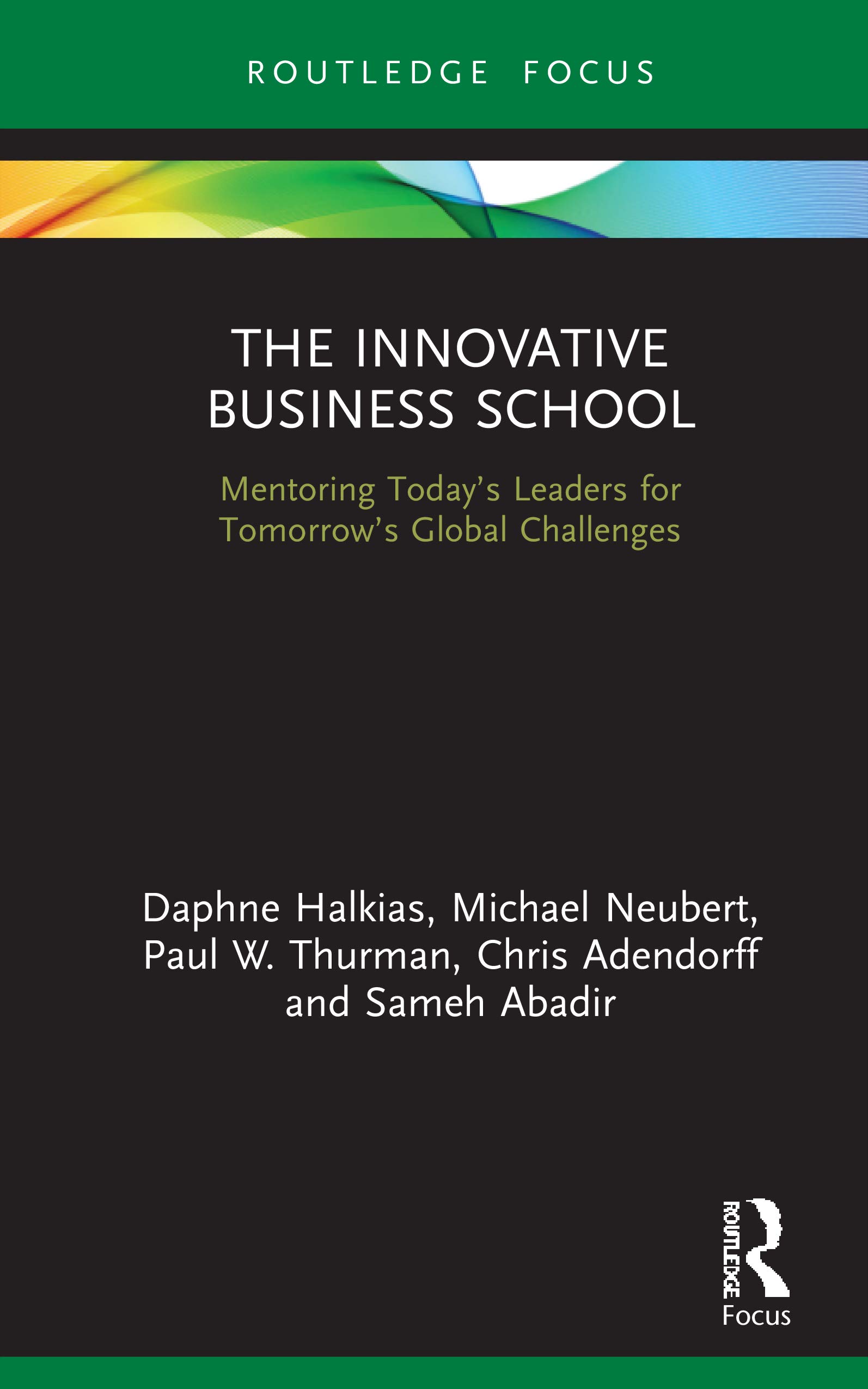The Innovative Business School
The fast pace of developments in global business and the tech sector demands business schools bring leaders to the market who can also deal with global challenges – this book looks at what needs to be considered and how this can be achieved.
This is an important resource as business schools must realize the need for reforms to graduate students who can respond to the demands of a fast-changing global business environment
Professor Sameh Abadir puts together a roadmap for reform to future-proof academic institutions
Business schools are the breeding grounds for the world’s future leaders, who will be tasked with grappling several megatrends and parlaying them into economic development and shared prosperity for all. But how can academic institutions innovate to produce the type of leaders that the world needs today and for tomorrow?
The Innovative Business School provides a blueprint for educators, school administrators, accreditation agencies and students to create a new model of business education. Co-authored by Professor of Leadership and Negotiation, IMD’s Sameh Abadir, this essential tome explores the key questions facing business schools in the next decade and beyond.
These bastions of management knowledge are at the heart of leadership development in the twenty-first century. Not only do they impart knowledge, they have a tangible, practical impact on business through fostering cross-cultural collaboration, technological innovation and, ultimately, creating value for all of society.
But they are criticized for being too academic in their approach to teaching, without enough practical relevance for today’s fast-changing business environment. “They teach book smarts, but they need to put the theory into practice to remain relevant, especially in a stressed time like this pandemic,” says Abadir.
The Innovative Business School draws on his decades of experience as an educator, researcher, consultant and businessman. One of the key themes is the globalization of business in recent decades and the need for greater academic collaboration across cultures to reflect the current interconnected business landscape.
A second central subject is how business schools are leading the sustainability agenda. They are aping the business world, which has shifted to a cuddlier form of capitalism in which profit maximisation at all costs is going out of fashion. Today, business needs to generate value for all stakeholders – suppliers, customers, staff – not just shareholders.
“There are too many toxic leaders. We need the next generation to show empathy and compassion.” Prof. Sameh Abadir
A third key theme is the digital revolution and how technological disruption is creating both treats and opportunities for companies. Business schools can be on the cutting edge of this digitization process through their research, teaching and industry partnerships.
These megatrends are driving rapid change in business and society, with the Covid-19 crisis compounding the shifts. There has perhaps never been a greater need for business schools to evolve to reflect the “new normal”. And, therefore, a roadmap for this transition is vital reading for every educator.
Research Information & Knowledge Hub for additional information on IMD publications
You can also buy the book on Barnes & Nobles, Book Depository, Orell Füssli and Routledge.
Professor
Professor Halkias is an exceptional, commendable research professional, a servant leader in her field, always providing relevant advice in the best interest of her students. Through her guidance, I have gained substantial competence and autonomy in preparing for my course – Advanced Qualitative Research Methods.
Professor
Michael is a lecturer, researcher, and thesis advisor in higher education with more than 20 years of experience. He also participated in internal projects (e.g. accreditation, chair of strategic committee), publishes actively about sustainable internationalization of start-up firms and pricing strategies in emerging markets. Besides his academic activities, he is involved in an IT start-up and a consulting firm.
Professor
Dr. Thurman, a multiple teaching and service award recipient, has extensive advisory and management experience helping a variety of global firms realize value from innovative business, operations, and technology strategies
Professor
Chris is the Adjunct Professor at the NMMU Business School and MD of Alfresco.
Many executives say they don’t have time for mindfulness practices, such as daily meditation. An alternative is micro-presence: weaving moments of ...
Technological innovation, advances in remote work, and reshaped post-pandemic priorities have led to companies hiring fractional leaders, or part-t...
In recent years, sustainable leadership has emerged as a powerful force reshaping corporate strategies worldwide. At its core, sustainable leadersh...
Research Information & Knowledge Hub for additional information on IMD publications
Research Information & Knowledge Hub for additional information on IMD publications
in I by IMD 5 July 2024
Research Information & Knowledge Hub for additional information on IMD publications
in HBR.org 2 July 2024
Research Information & Knowledge Hub for additional information on IMD publications
in I by IMD 28 June 2024
Research Information & Knowledge Hub for additional information on IMD publications
Research Information & Knowledge Hub for additional information on IMD publications
Research Information & Knowledge Hub for additional information on IMD publications
Research Information & Knowledge Hub for additional information on IMD publications
in I by IMD 19 June 2024
Research Information & Knowledge Hub for additional information on IMD publications
Research Information & Knowledge Hub for additional information on IMD publications









